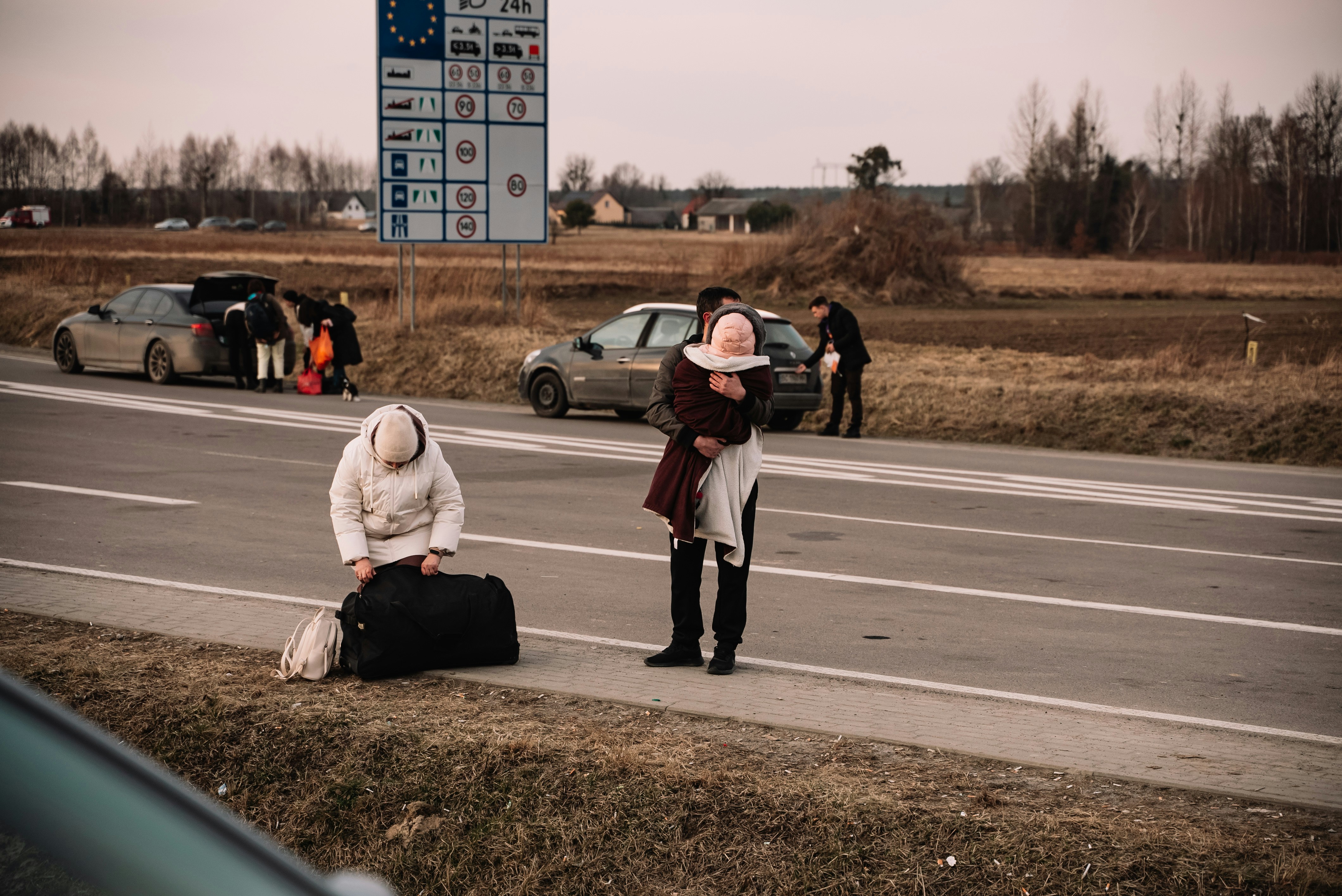Since the Russian invasion of Ukraine in February 2022, over 8 million Ukrainians have been displaced across Europe, predominantly women and children.
The United Kingdom has become a significant destination, with more than 161,400 Ukrainian refugees seeking shelter and stability within its borders.
The influx of Ukrainian refugees into the UK has been facilitated through special visa routes set up by the government, primarily the Ukraine family scheme and the Ukraine sponsorship scheme, known as "Homes for Ukraine." These initiatives have provided avenues for Ukrainians to reunite with family members or secure accommodation with sponsors for at least six months.
As of February 14, 2023, the UK government has issued 65,900 visas under the Ukraine family scheme and 152,600 visas via homes for Ukraine. Visa holders under these schemes have been granted the right to work and study in the UK for up to three years, along with access to benefits and monthly payments under homes for Ukraine.
Polina Tutik is a 29 year old Ukrainian Citizen who fled to Europe with her husband just before the war officially broke out. In an interview with Premier she told us they knew “it was time to leave, as [political] tensions were growing”.
She described the first wave of the war in Ukraine as “chaos” and spent the first year in Turkey, assisting others trying to leave Ukraine.
The UK homes for Ukraine was “perfect” for Poliana and her husband and they were offered to stay for 6 months with a family in Leicester. “We found a great family…it was so so helpful, we are really grateful to them
“I think it’s extraordinary that people were ready to let strangers from Ukraine in their home”
Speaking of her faith Poliana is sure that “God wants us to be here for now”
Despite the success of a home placement, she emphasised how “being refugees is not a piece of cake
“We felt unsettled for quite a while. It was challenging because we didn’t have a home and we didn’t know where our home is
“Everything you do day to day like ordering pizza, going to a GP or opening a bank account…you knew how to do that and then all of a sudden you don’t know”
Two years on, Poliana and her husband feel more settled into life here. Looking to the future, they want to trust God with their journey as they see God “opens the doors”. They have decided that for the next couple of years at least, they will be staying in the UK.
Olena Kovalenko is a Mum of one who originally came over to the UK in 2013. When she had her little girl, she took her daughter back to Kyiv to start school in 2021.
However, not long after their return, the war began. Olena faced many challenges on her return to the UK. She described the biggest challenge as coming to terms with “the shock of the war” she said “nobody believed it would ever happen…it took me months to get over that shock”
She lives by the motto that you have to “pull yourself together and do your best”
Orlena says the biggest problem for Ukrainian refugees in the UK currently is the housing.
“A lot of sponsors have finished their sponsorship programme and now all these people have to live somewhere.
“Now the housing crisis is in even bigger trouble”
However, she said she was “moved and touched” by the way the British people “opened their hearts and homes for complete strangers
“I never find the right words to say how grateful I and Ukrainian people are to see what British people have done”.
Orlena has concerns about going back to Ukraine after the war she explained how many Ukrainians “have nothing to go back to…it has been destroyed”
While Homes for Ukraine has been widely considered a success. Data from the Office for National Statistics (ONS) indicates that nearly half of visa holders encounter barriers accessing private rented accommodation, and half face difficulties securing employment in the UK.
Statistics show how 56 per cent of Ukrainian participants cited their limited proficiency in English as hindering their job search in the UK, with 33 per cent indicating that employers did not acknowledge their qualifications from Ukraine.

Additionally, data from the ONS survey reveals that 65 per cent of employed refugees in the UK have transitioned to different sectors from their previous roles in Ukraine. Particularly noteworthy is the shift from fields such as education and finance to industries like hospitality, food production, agriculture, and farming.
Daryna, a Ukranian refugee told ‘The Conversation’ that “Almost 80 per cent of Ukrainians who came to England are educated, they have diplomas and several diplomas, but currently they only offer cleaning … we’re cheap labour for the English at the moment.”




